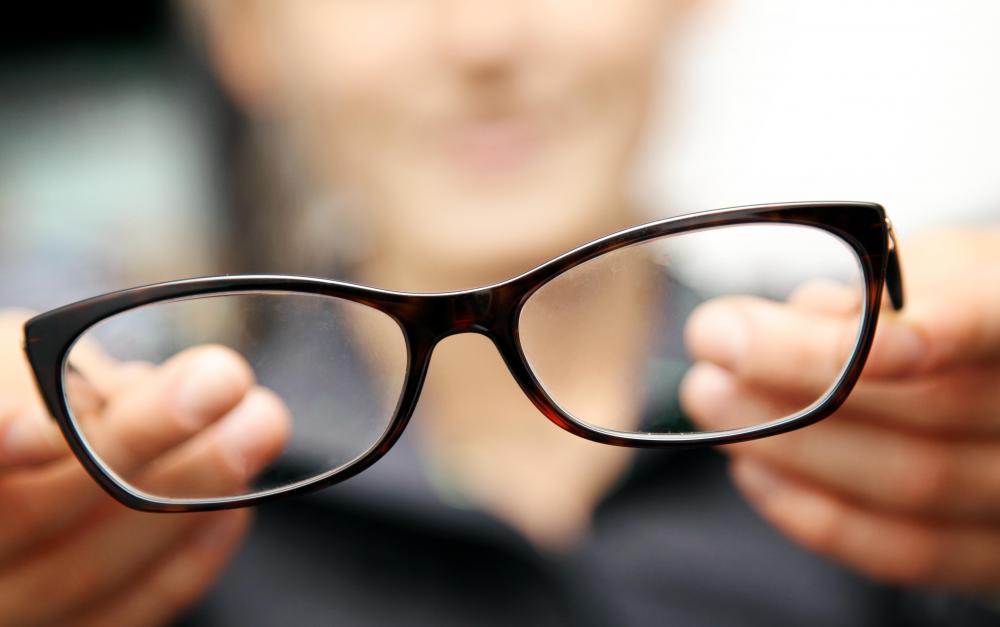At WiseGEEK, we're committed to delivering accurate, trustworthy information. Our expert-authored content is rigorously fact-checked and sourced from credible authorities. Discover how we uphold the highest standards in providing you with reliable knowledge.
How Does Mannitol Work?
Mannitol is an osmotic diuretic that is primarily used to increase urine output, which reduces the amount of fluids present in the body. It works by osmosis, drawing water out of cells and into the bloodstream. When this fluid reaches the kidneys, the drug also works as a renal vasodialator, preventing the reabsorption of water and sodium along the renal tubule. Circulating freely within the tubule, mannitol retains fluid, which is converted to urine and excreted from the body. It effectively increases urine production and flushes the kidneys.
This drug is beneficial in treating acute kidney failure, glaucoma, edemas and rhabdomyolysis, and it is helpful in reducing intracranial pressure levels caused by traumatic injuries, such as hematomas. This treatment is known as mannitol osmotherapy. The results are only temporary, however, diminishing as the drug is passed out of the system. Repeated use also has diminishing results, because the cells will begin to compensate by producing idiogenic osmoles. These osmoles raise cell tonicity, limiting the osmotic flow of fluid out of the cells.

Mannitol, a monosaccharide organic compound, is a white crystalline powder that dissolves in water for administration by injection or intravenous infusion. The proper chemical name is D-mannitol (C6H14O6), and it is administered by medical professionals via injections in concentrations of 5 percent, 10 percent, 15 percent and 20 percent, as well as via intravenous infusion in a concentration of 25 percent.

By increasing urine output, this substance helps prevent kidney shutdown in cases of acute kidney failure. The drug can also reduce fluid pressure when treating glaucoma, which involves raised fluid pressure in the eye. It can also be administered to remove certain drugs and poisons from a patient’s blood system, such as aspirin, barbiturates, bromides and carbon monoxide.

When taking mannitol, regular blood tests should be performed to monitor kidney function, including potassium and sodium levels. Patients should also monitor their intake of sodium. Some possible side effects of this medication include headaches, blurred vision, chest pains, seizures, nausea, vomiting and changes in blood pressure. If any of these conditions arise, patients should contact their care provider.

Care should be taken to monitor intravascular volume. As water is drawn out of cells and into the bloodstream, the overall volume of the circulatory system will rise. Although this might lower the blood’s viscosity, improving the flow and delivery of oxygen to some parts of the body, it can also lead to high blood pressure and acute congestive heart failure.
AS FEATURED ON:
AS FEATURED ON:














Discussion Comments
@turquoise-- I don't think it causes dehydration because it gets rid of the excess water in the body. The health care professional will know what dose to give so that it is just enough to remove excess water and not any more
Mannitol is generally given when there is some sort of swelling in the body, so there is way to much fluid than there should be. That's why dehydration is generally not a symptom.
You can loose essential minerals though, especially potassium and some people might need vitamins after a mannitol treatment, and maybe an IV in severe cases.
Since mannitol causes water to exit the cells and body and stay that way for a while, doesn't it lead to dehydration and loss of essential minerals and electrolytes from the body?
In terms of days, how long will it take for the medicine to leave the body? Let's say for the lowest dose?
I've been given mannitol several times by my doctor for edema. It worked so well, the swelling and water retention was gone very quickly and I felt so much better. I actually asked my doctor if I could is it regularly, like once a day, and he said no. I could not understand why since I felt that it worked so well.
Now I understand how it actually works. I did not realize that it put so much more pressure on the circulatory system. I probably also experienced high blood pressure when I took it but didn't notice. Of course, it can't be used all the time, that would cause other problems. Thanks for the information, it really clarified it for me.
Post your comments